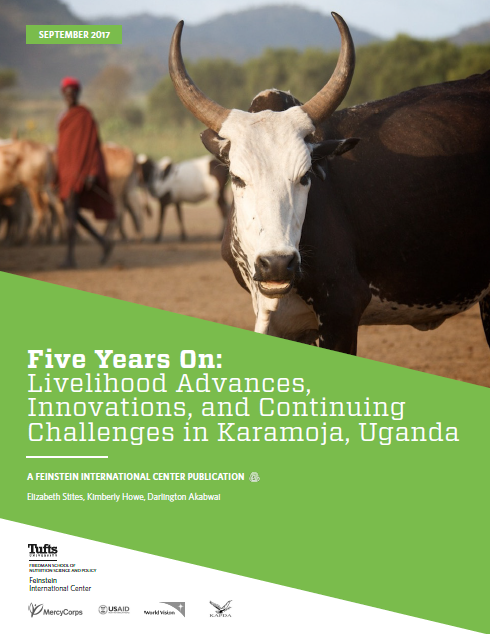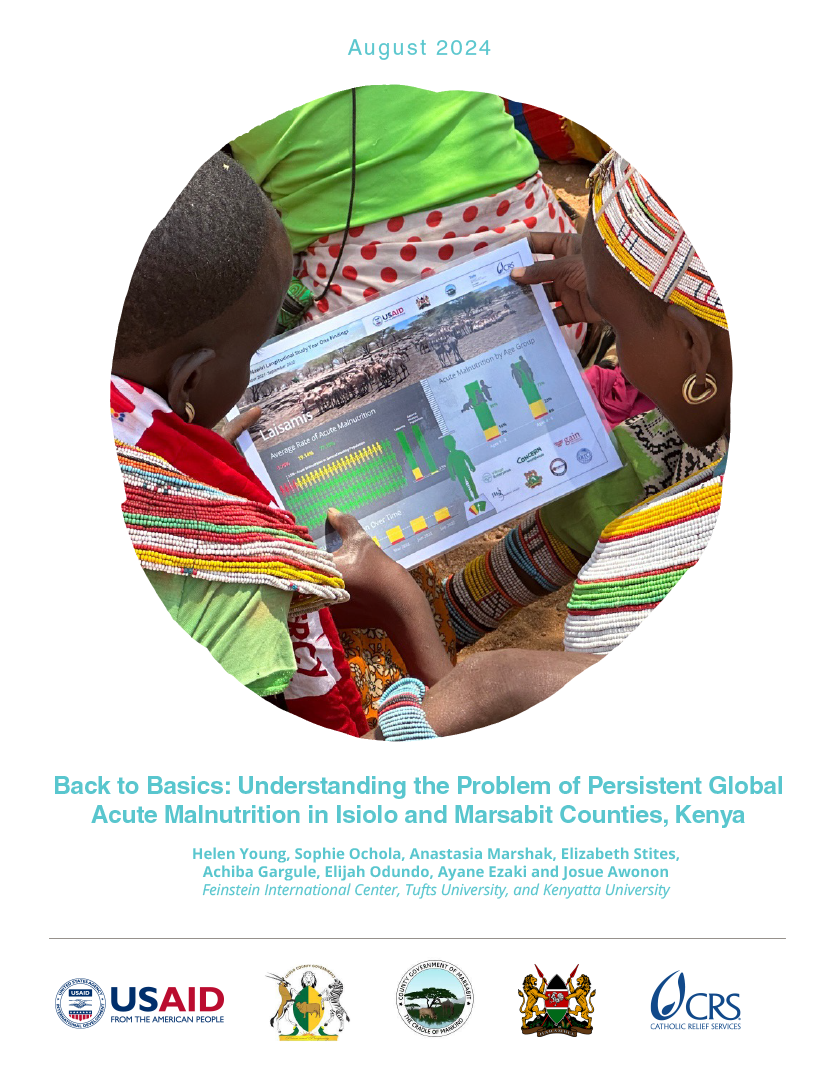This report marks the final report in the five years of collaboration between Feinstein and Mercy Corps on the USAID/FFP-funded Growth, Health, and Governance (GHG) program in northern Karamoja, Uganda. The objective of this fifth year of study was to examine key areas of change in Karamoja over the past five years to inform development programming decisions. Specifically we examined the population’s access to and utilization of services, innovations in community-based water management and improved seed and post-harvest technology, and interaction with veterinary services.
Overall, we find marked areas of improvement in many facets of life in the region: access to services has expanded, security has increased, and markets are more dynamic. More specifically, more young men report being able to marry, food security appears to be improving, and access to community animal health workers and livestock treatment has grown, to name just a few. Mercy Corps and other actors have been able to capitalize on these developments to expand programs such as payment for preventative borehole maintenance and use of vouchers for improved seeds and agricultural technology.
Despite the positive changes, the region still faces range of challenges, including endemic poverty, limited governance capacity, and inadequate mechanisms to maintain public infrastructure. Knowledge gaps continue regarding shifts in equity of livestock ownership and how such imbalances correspond with use of services and markets.







